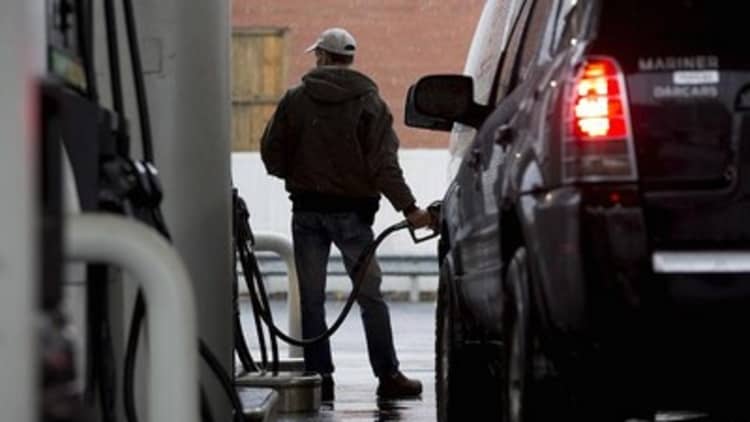When James and Stef Adinaro first looked into purchasing an RV in 2010, they were hesitant. At 42 and 39, they felt they were too young to purchase a recreational vehicle.
Five years and one RV later, the Adinaros are hoping to upgrade, having embraced the road-tripping "RV lifestyle."
Originally, the couple, who lives in Salt Lake City, purchased a used mid-size 2003 Mercedes van for convenience while traveling to bicycling competitions. But now, the couple are considering buying a new Winnebago model, the Travato, which caters to the more physically fit RV owner—complete with a bicycle and kayak rack.
Read MoreThe future of car security? It's in the eyes
The Travato, which has a suggested retail price of $85,476, is an example of how the industry is hoping to cash in on a physically fit consumer.
"The big shift is occurring in how people RV. Nowadays, RVers are more active," said Stef Adinaro, a personal trainer. RV parks have begun catering to this shift by offering more gyms, fitness classes, walking trails and bike rentals, she said.

Helping to fuel that trend is, in some cases, a consumer who is younger than the industry has seen in the past.
Read MoreLow gas prices encourage near-record driving levels
According to the Recreation Vehicle Industry Association's most recent ownership report, the fastest-growing cohort of RV owners in 2013 was 35 to 44 years old, which is just slightly less than the industry's largest cohort of owners, which are between 45 and 54 years old. The average American RV owner was 50 in the 1980s, and today that age is 48 and falling.
"You used to think of RVs and think of the cigar-smoking grandpa and the retired couple," said Matt Rose, director of recreation vehicles at the Indiana Manufactured Housing Association-Recreation Vehicle Indiana Council, "but not anymore."
And that could be good news for not only RV manufacturers, but also for RV parks.
"They spend more money on experience than on a material good," said Rose, who coordinates retail shows in Indiana. He has seen that these younger RVs spend more money while traveling and take more frequent trips.
RV sales historically have tended to rise and fall with the economy and consumer confidence. Right now, they are on the upswing.
Read MoreBeat the winter by getting a jump on travel deals: Expert
Shipments have grown steadily, reaching an eight-year high of 356,735 units shipped nationwide in 2014, according to the RVIA. Shipments showed an 11 percent gain year over year, and a 116 percent gain since the industry's recession low of nearly 165,000 in 2009.
General Electric, one of the RV industry's largest lenders, expects the trend to continue.
"What we have seen since 2015 has begun is very strong attendance at retail shows," said Tim Hyland, president of the RV group at Commercial Distribution Finance for GE. The growth in attendance has been consistent nationwide, and it speaks to current consumer interest.
In a survey conducted by GE at the annual RVIA trade show in Louisville, Kentucky, in December, 41 percent of survey respondents—the majority of which were RV dealers—said they expected sales to rise 5 percent to 10 percent next year, and 26 percent expected a 10 to 15 percent growth.
"Historically, when the RV market is growing, a younger buyer does typically come back," said Randy Potts, chief executive officer and president of RV manufacturer Winnebago.
Read MoreSelf-driving cars will kill some legendary auto brands
Margo Armstrong, an RV owner since 1995 who travels full time in her vehicle, writes about the on-the-road lifestyle, and says physically active RV-owning families and couples in their 60s are common.
"Retired with a 401(k), hopefully still intact, most are active, like to park in groups, and are into pickleball, pool, crafts," said Armstrong, describing the typical RVer.
"Parks are opening yoga classes and exercise rooms," said Ray Champagne, owner of Beach Rose RV Park in Salisbury, Massachusetts. He said the majority of the consumers he sees remain baby boomers, but that they want to stay as physically active as possible and do more on the road.
Champagne opened his RV park in 2000 as he entered "semi-retirement" and says the industry has changed "tremendously."

